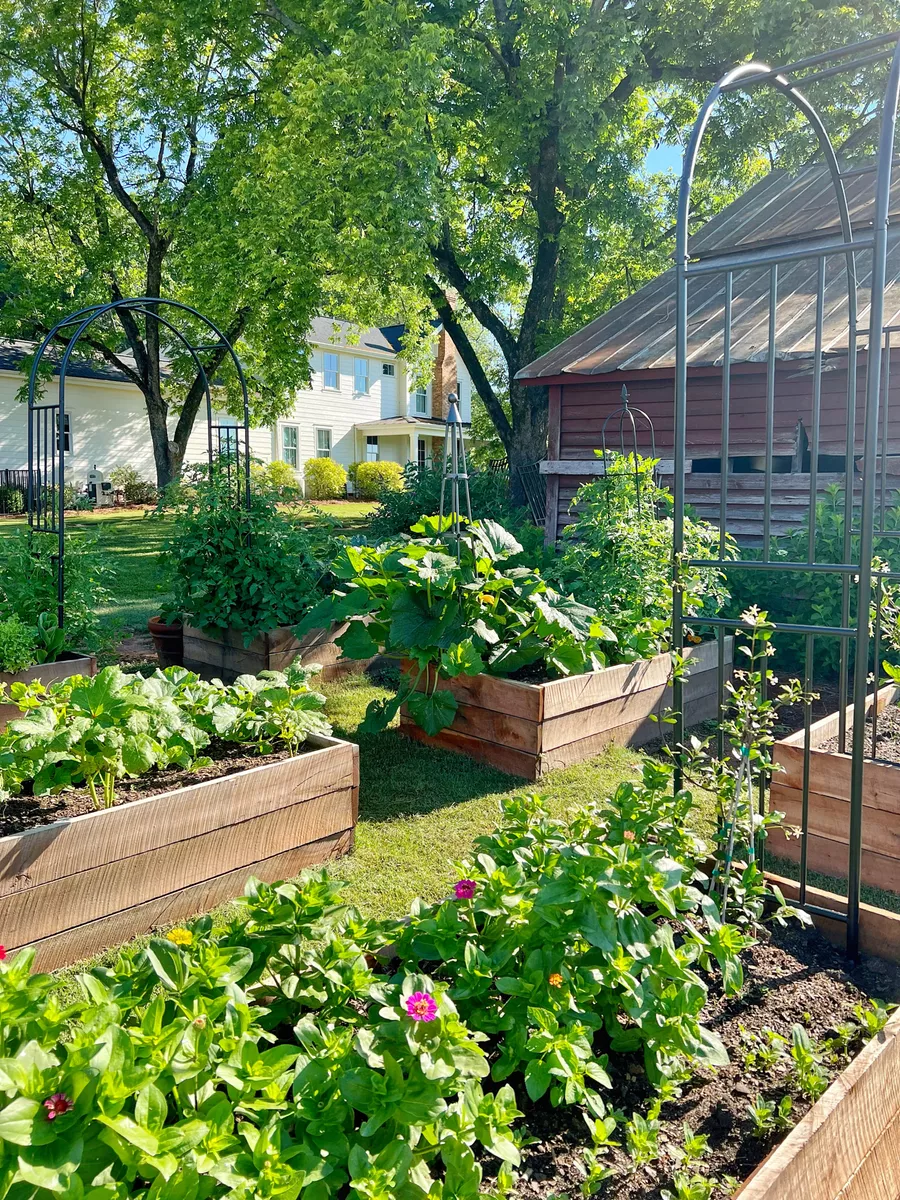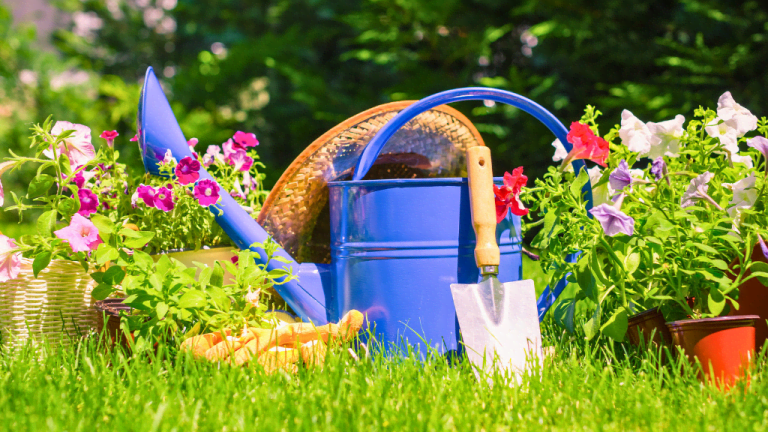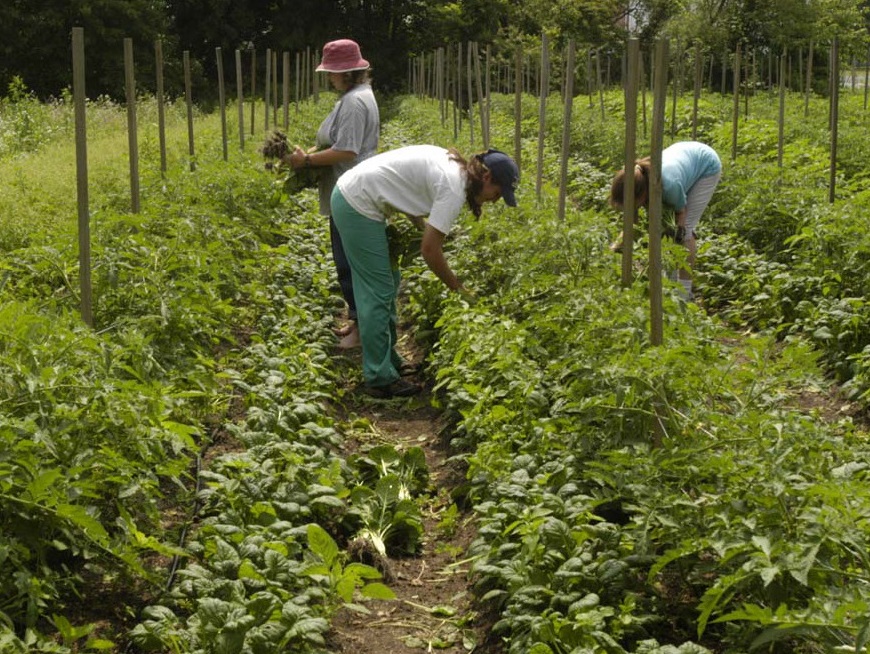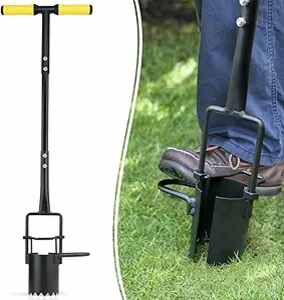Understanding the Different Kinds of Gardening and How They Add to a Much Healthier Lifestyle and Atmosphere

Advantages of Veggie Horticulture
Several people are significantly acknowledging the myriad benefits of veggie horticulture as a crucial part of a much healthier way of living. Engaging in veggie horticulture provides various physical wellness benefits, including enhanced physical task, which improves cardiovascular wellness and advertises overall health and fitness. The act of growing, weeding, and harvesting calls for activity and can assist battle inactive actions, adding to weight management and improved muscle mass tone.
Furthermore, growing one's own veggies dramatically enhances dietary high quality. Organic fruit and vegetables is usually fresher and much more nutrient-dense contrasted to store-bought options, as it can be consumed quickly after harvest. This access motivates a higher consumption of fruits and vegetables, which are important for stopping persistent conditions.
Furthermore, vegetable gardening cultivates psychological wellness by supplying a therapeutic electrical outlet for anxiety relief and leisure. The act of often tending to plants can be reflective, allowing people to attach with nature and get away the stress of every day life. The lasting practice of growing one's very own food decreases dependence on industrial agriculture, contributing to ecological preservation and promoting biodiversity. Collectively, these benefits highlight the significance of vegetable horticulture as a keystone of a healthier lifestyle.
Checking Out Blossom Gardening

In enhancement to aesthetic advantages, flower horticulture sustains regional environments. Several blooming plants bring in pollinators, such as bees and butterflies, which are crucial for keeping biodiversity. The presence of diverse vegetation can additionally enhance soil health, as different plants add to nutrition cycling and improve soil structure.
In addition, blossoms can play a substantial role in promoting lasting practices. Numerous garden enthusiasts select native or drought-resistant varieties, which call for much less water and minimal chemical inputs. This technique not only benefits the atmosphere however also encourages liable horticulture behaviors.
Ultimately, blossom horticulture offers as an important element of a holistic gardening strategy. Gardening. By cultivating elegance and sustaining local ecological communities, it harmonizes with vegetable gardening and underscores the value of nurturing both our physical and mental wellness via nature
Container Horticulture Benefits
Container gardening offers various advantages that make it an attractive option for both newbie and experienced gardeners. Among the main advantages is its convenience; containers can be positioned on patio areas, porches, or perhaps inside, enabling gardening precede with restricted ground gain access to. This versatility allows people in urban atmospheres or those with small backyards to grow plants effectively.
Additionally, container horticulture provides boosted control over soil high quality and moisture levels. Gardeners can select details dirt blends to maximize plant wellness and mitigate problems like weeds and bugs. The wheelchair of containers likewise allows for simple relocation to take full advantage of sunshine exposure or safeguard plants from stormy weather condition.
Moreover, container yards can be aesthetically pleasing, using a possibility for creative thinking in design. Gardening. They can offer as attractive elements that improve outdoor or interior spaces while advertising biodiversity by bring in pollinators
Finally, container gardening can add to a much healthier lifestyle by motivating exercise, as it usually involves training, growing, and maintaining plants. Generally, the benefits of container horticulture make it an easily accessible and fulfilling practice for those seeking to improve their lifestyle and setting.
The Increase of Vertical Horticulture
As city areas become progressively crowded, the fad of upright horticulture has actually removed, permitting individuals to maximize their horticulture possibility in restricted locations. This innovative technique involves expanding plants in vertical structures, such as wall-mounted planters, trellises, or specialized vertical garden systems. The allure of vertical horticulture exists not only in its efficient use of room yet likewise in its aesthetic contribution to urban atmospheres, changing bare walls right into lush green landscapes.
Vertical gardens can be installed in homes, verandas, and community rooms, supplying a system for expanding a selection of plants, check out this site consisting of natural herbs, vegetables, and ornamental flowers. This technique urges biodiversity and can improve air quality by filtering system contaminants while promoting a connection to nature in largely populated locations. In addition, vertical horticulture offers useful benefits, such as boosted return per square foot, making it an attractive alternative for urban garden enthusiasts looking for to grow their very own food.

Sustainable Practices in Horticulture
Embracing lasting practices in gardening is crucial for advertising ecological health and ensuring the practicality of our natural deposits. Lasting horticulture strategies concentrate on decreasing ecological impact, preserving water, and fostering biodiversity. By carrying out methods such as natural horticulture, garden enthusiasts can decrease making use of synthetic plant foods important link and pesticides, which can hurt regional ecological communities.
Buddy planting is an additional efficient sustainable approach, where specific plants are expanded with each other to enhance growth and discourage insects naturally. In addition, using indigenous plants in landscaping supports regional wild animals and calls for less maintenance, as they are naturally adjusted to the local climate and dirt problems.
Water conservation methods, such as rainwater harvesting and drip watering, help to successfully take care of water sources, therefore minimizing waste. Composting natural waste not just improves the soil yet additionally lowers garbage dump contributions, advertising a round economic situation.
Last but not least, practicing crop turning and cover cropping enhances dirt health and wellness and lowers the risk of parasite invasions. By incorporating these sustainable techniques, garden enthusiasts can create resistant ecosystems that contribute to a healthier way of life while securing the atmosphere for future generations.
Conclusion

In conclusion, the diverse techniques of gardening, consisting of veggie, flower, container, and vertical horticulture, jointly advertise a much healthier way of living and enhance environmental sustainability. Each type supplies distinct advantages, from offering fresh fruit and vegetables and attracting pollinators to maximizing restricted areas and encouraging biodiversity. By promoting sustainable practices, click for source these gardening approaches not only add to private wellness yet likewise support wider environmental preservation initiatives, inevitably minimizing dependence on commercial farming and enhancing area resilience.